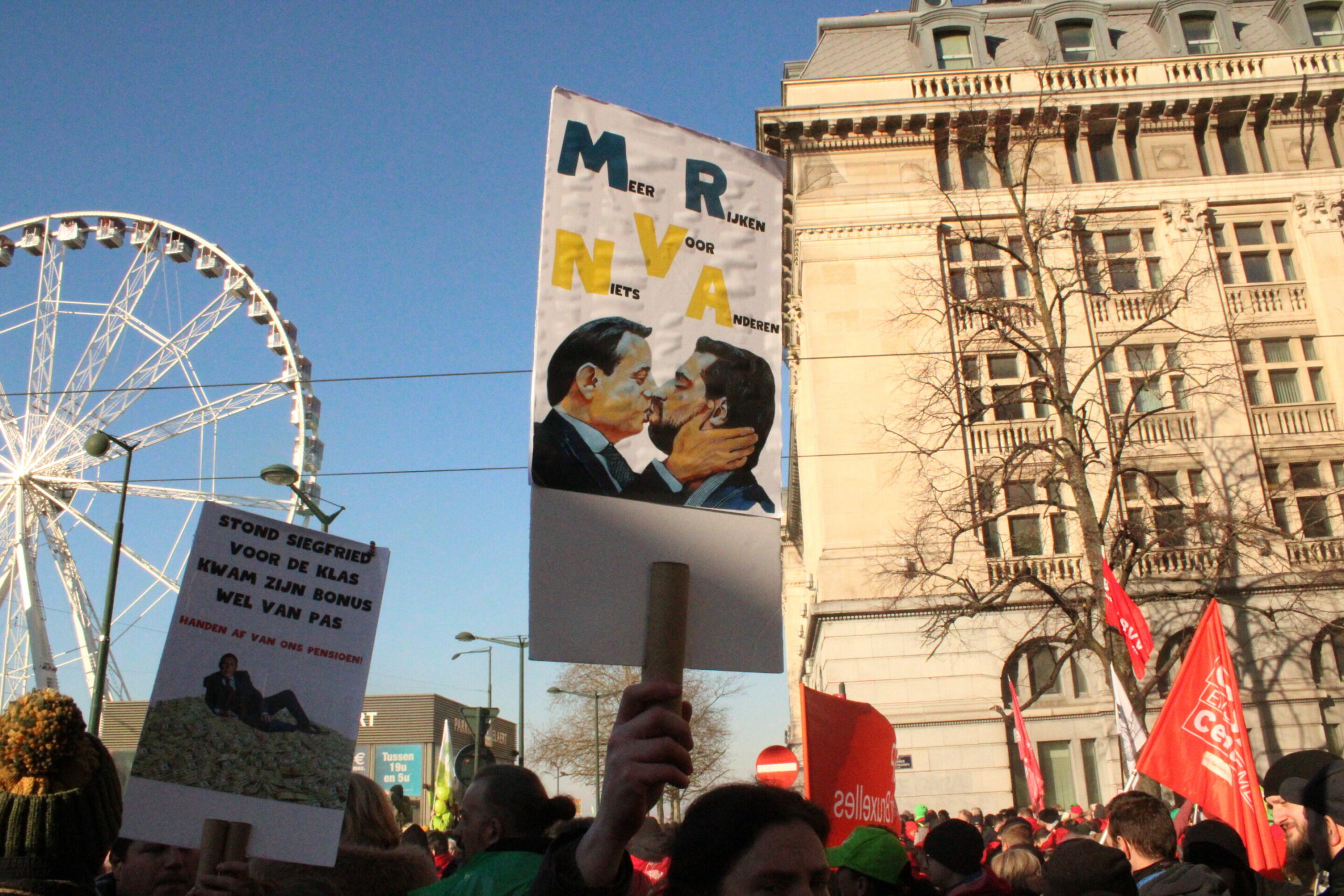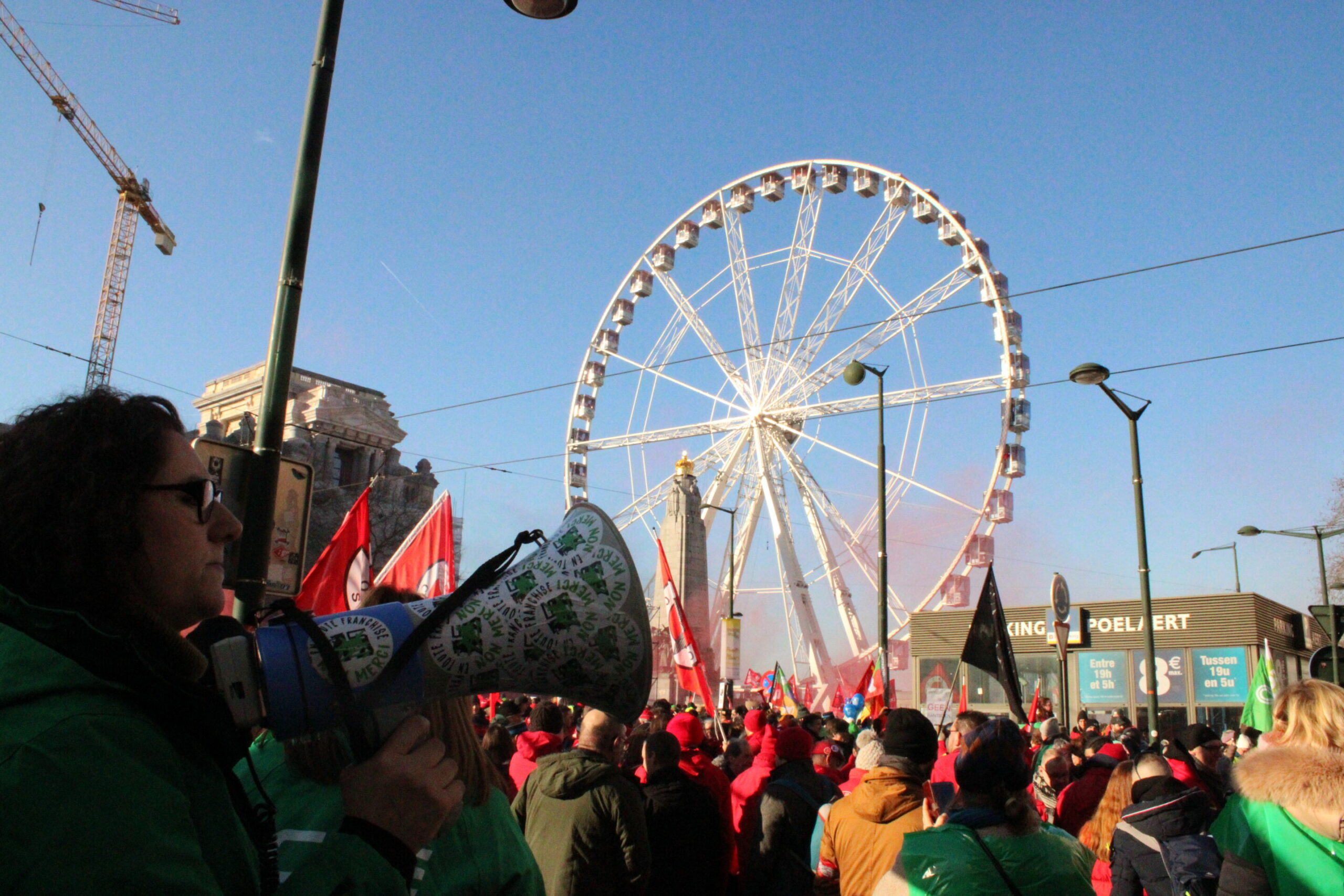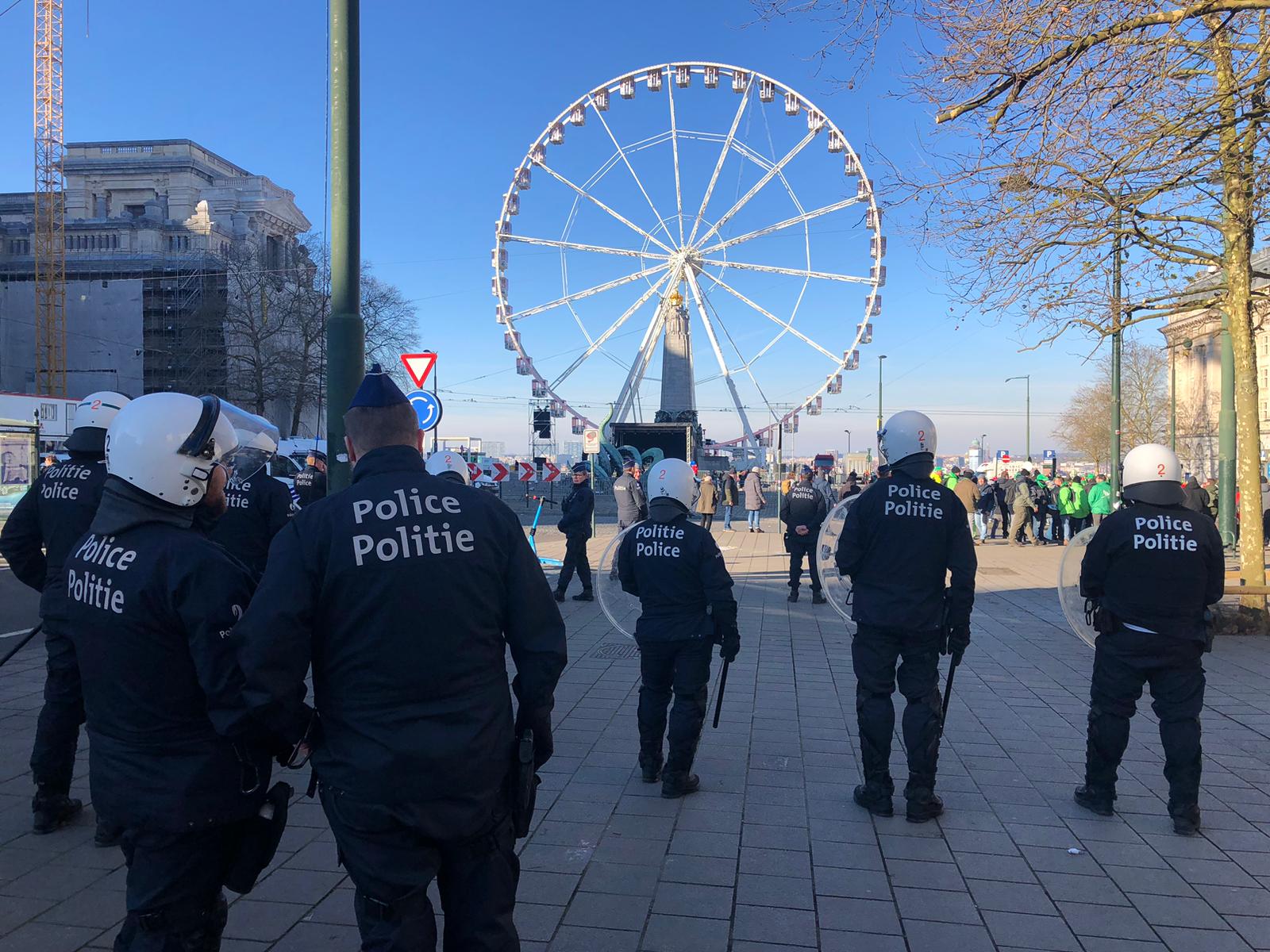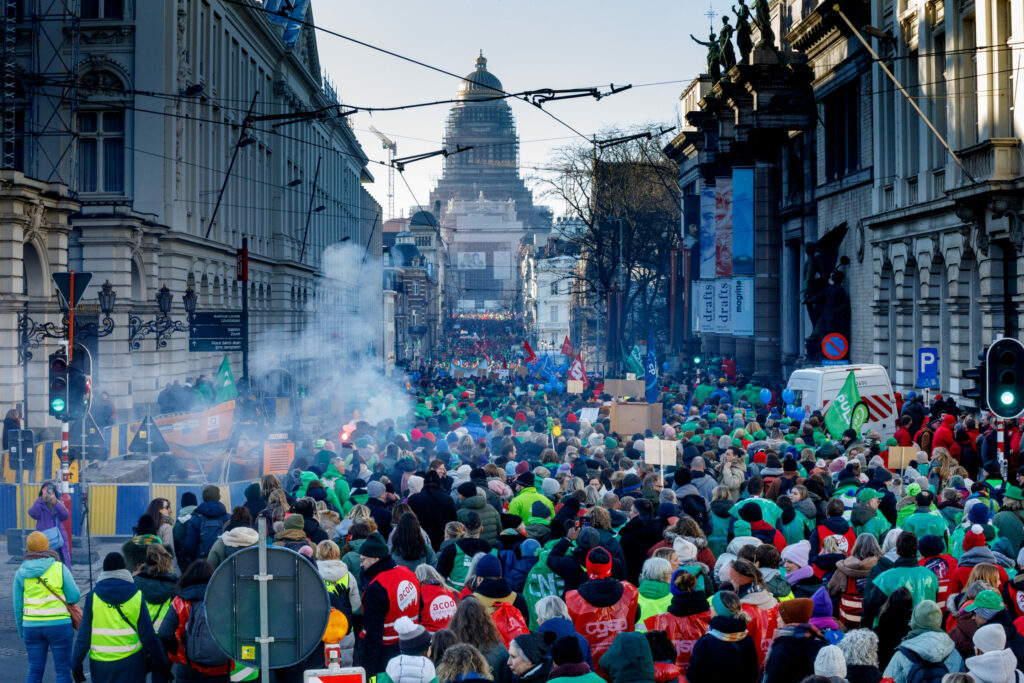Over 30,000 people marched on Monday in a nationwide demonstration against austerity. As government negotiators struggle to agree the socio-economic programme that will outline reforms and probable cuts to federal spending, it is unlikely that the demands of the protestors will be heard.
As public services across Belgium were disrupted by the mobilisation on Monday, trade unions vowed to "escalate" their actions.
Red smoke colours the air while fireworks, drumbeats and leftwing chants provide an uproarious soundscape. This is not the first anti-austerity protest to populate Place Poelaert but it is one of the most critical. Unions are denouncing the pension reforms being negotiated at this very moment, as Belgium's next Federal Government reaches the final negotiation phase.
The prospective 'Arizona' coalition – made up of N-VA, Mouvement Réformateur (MR), CD&V, Les Engagés and Vooruit – want to institute cuts worth €23 billion in an effort to reduce the national debt. To stabilise national finances, significant changes are planned for pensions, which have been labelled an "unprecedented attack" by unions.
Teachers, prison staff, rubbish collectors, firefighters and other public sector employees united in the march to "support our resistance! You are our strength!"
A more humane Arizona
"Demanding that people in challenging jobs work longer hours is not humanly or physically possible," CNE trade unionist Elisabeth Lovecchio (49) told The Brussels Times. "Making careers longer won't solve anything."
"We should be working less hours, enjoying greater wellbeing and sharing the work," she maintained. "We should reduce working hours so that everyone has a job. That is how we're going to get the economy going again."
But whilst the protestors denounced the policies put forward by federal negotiators as being "inhumane", they acknowledged that the next government must inevitably be composed of the five Arizona parties.

Credit: The Brussels Times
Karel Bode (44) is a primary school teacher in Flanders. He says he will have to work longer hours and forgo the original pension sum he signed up for. "If these plans go through they will take it away from us."
Sebastien (44) is a firefighter in Brussels. "As public workers, we are affected by the cuts too," he told The Brussels Times. "Politics always comes back to the same thing: save money, cut pensions, cut salaries ... they are against the workers, unfortunately."
Olivier De Ridder (59) maintains Brussels' energy grid. He shares the others' concerns: "Cutting pensions is one thing. Using the money to fund rearmament is another."
Prioritising social security over defence spending is a recurring theme among demonstrators, as is Arizona's planned crackdown on the right to protest. "If we go down that road, Belgium will be a dictatorship rather than a democracy," said Lovecchio.

Credit: The Brussels Times
Any chance of change?
Negotiators have said repeatedly that the Arizona coalition offers the only credible option to form a government. "It is the best bad idea we have," N-VA leader and formator Bart De Wever told Flemish media.
Vooruit, the only leftwing party of the Arizona formation, told The Brussels Times that "difficult decisions have to be made to put the finances of our country in order. It is important to us that efforts to achieve that goal are fair." It added that "nothing has been finalised yet."
The Brussels Times did not receive a response from N-VA, MR, Les Engagés or CD&V when contacted for comment.
What does escalation look like?
Trade unions have vowed to "escalate" the movement if Arizona does not listen to their demands. What does this look like?
"I don't know, but today is today and we will have to see what the next step is," said Bode.
"Look how many people are here before any decision has been made," said De Ridder. "If politicians go in the wrong direction now, things will escalate and that is a fact."
Thierry Bodson, president of the FGTB union, has not ruled out a general strike. "We will escalate our actions, up to a general strike if necessary, to be heard," he said.
Trade unions plan to continue regular demonstrations on the 13th day of every month.

Police closing in on Place Poelaert, where the demonstration ended on Monday 13 January. Credit: The Brussels Times

